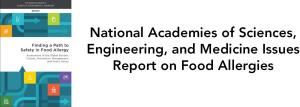 The American Academy of Pediatrics and the National Institute of Health estimate that egg allergy affects two percent of children and along with milk and peanuts represent 80 percent of childhood food allergic reactions. Other allergens include tree nuts, shellfish, fish, wheat and soy products.
The American Academy of Pediatrics and the National Institute of Health estimate that egg allergy affects two percent of children and along with milk and peanuts represent 80 percent of childhood food allergic reactions. Other allergens include tree nuts, shellfish, fish, wheat and soy products.
In a recent article authored by Dr. Katie Marks-Cogan, a board-certified pediatric allergist, early introduction of potentially allergenic foods into the diet of children reduces a risk of developing food allergies that may persist through teenage years. Dr. Marks-Cogan suggests introduction of eggs in the diet as early as four to six months. Potentially allergenic food should be introduced only if babies are healthy and can be monitored for any sign of an adverse reaction within two hours of feeding. It is suggested that infants should be exposed to allergenic foods two to seven times per week for a period of at least three months.
 Recently the Egg Nutrition Center of the American Egg Board has undertaken studies on egg allergy and Dr. Mickey Rubin and colleagues have presented their findings at meetings of dieticians and nutrition professionals.
Recently the Egg Nutrition Center of the American Egg Board has undertaken studies on egg allergy and Dr. Mickey Rubin and colleagues have presented their findings at meetings of dieticians and nutrition professionals.